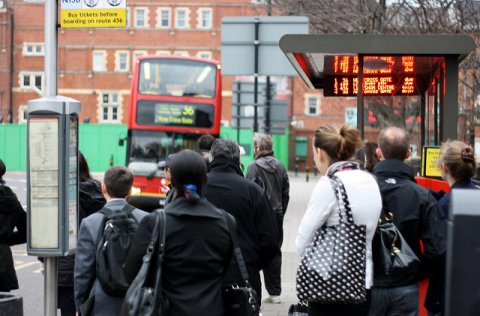
22 October 2016
Wednesday 26th October is the anniversary of 30 years of bus deregulation and privatisation. But what does it all mean? Here's a quick explainer of who runs your buses and why you should care.
Privatised, deregulated buses - the worst option
In 1986, Thatcher deregulated the buses. Buses are deregulated in Scotland, Wales and England (everywhere except London). This means not only that the buses are run by private companies, but that local authorities can't regulate those private companies.
The big five bus companies - Arriva, First, Go-Ahead, National Express and Stagecoach - dominate 70% of the market. They decide which buses to run and when. If the local authority knows that a service is needed which won't make money for the bus company, they can pay a bus company to run that service.
As bus funding gets cut, it is more and more difficult for local authorities to pay for these extra 'socially necessary' routes - which is why we are losing so many vital bus services. Campaign for Better Transport research shows that since 2010, local authorities in England and Wales have cut £78 million in funding and over 2,400 routes have been reduced or withdrawn altogether.
The idea behind bus deregulation is that competition will lead to the best results. In reality, competition hasn't worked that well. Sometimes there have been 'bus wars' where companies fight for passengers - this is disruptive. Other times, there is no competition, fares are high and people have little control over the bus service the company chooses to provide.
In 2011 the Competition Commission (now the Competition and Markets Authority) pointed out that bus passengers tend to get on the first bus that comes along, instead of choosing between bus companies (like proper consumers!) In our view, that's because buses are a natural monopoly - it makes sense to run them as an integrated network, not a competitive market.
Privatised, franchised buses - a slightly better option
With bus franchising, the buses are still run by private companies, but the local authority has more control. In London, this is how it works and bus use has risen while falling elsewhere. Transport for London gets to decide on what services are needed for its network and has some control over fares and routes. Running the buses as a network is more efficient because profitable routes can subsidise the routes that don't make money. In London, private companies run the buses but they are effectively told what to do so that people get the services they need. This is how it works on the trains as well. There is a franchise which sets out what is needed and the companies bid to run that franchise.
Bus companies make less of a profit when buses are run through franchises. Bus companies in the big cities made average profits of over 8%; in non-metropolitan areas the figure was over 6%; whereas in London (where services are regulated) it was less than 4% (see Transport for Quality of Life research). .
The government is allowing new areas outside London to run buses this way but it wants to link bus franchising powers to devolution and having a mayor. We believe all local authorities should be allowed to run buses through franchising, whether they have a mayor or not. Transport for Quality of Life research shows that if all local authorities franchised their bus services it would save £340 million, more than enough money to restore all the bus services that have been cut since 2010.
Public ownership - the best option
There are 12 municipal public bus companies across the UK - in Blackpool, Cardiff, Edinburgh, Dumfries and Galloway, Halton, Ipswich, Newport, Nottingham, Reading, Rossendale, Swindon and Warrington. Local authority-run bus companies have a great track record - they have won bus operator of the year at the Bus Awards in four of the last five years. Buses in Northern Ireland are operated by a public company, Translink.
Public bus companies can run their buses as a network (as with franchising) but they also have an extra advantage - they can reinvest all their profit instead of handing some of it to shareholders. This means they have extra cash to use to provide better services. For example, Reading Buses can afford to invest an extra £3 million a year in its bus network because it doesn't need that money for shareholder dividends. The company uses the money to make sure people in Reading have a bus service from 6am to 11pm.
Public ownership is happening elsewhere too. In most German and Austrian cities, buses are run by local public bus companies. In Vienna, for example, passengers enjoy new buses and a comprehensive service including universal nightbus services.
Buses are really important for our lives and our communities. 5.2 billion journeys are made by bus every year. If buses outside London were run in public ownership, research shows we'd save £506 million a year. This money would allow us to reverse recent bus cuts and invest in new services. Right now the government wants to ban English local authorities from setting up new public bus companies. We're campaigning against this ban.
Want buses for people not profit?
Here's what you can do:
1) Sign the petition for buses for people not profit.
2) Ask your councillors to campaign against clause 21.
3) Send us your bus selfie and tell us why you want public ownership of buses.


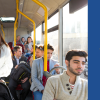
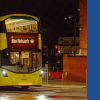
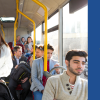
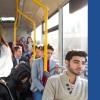
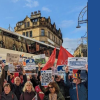


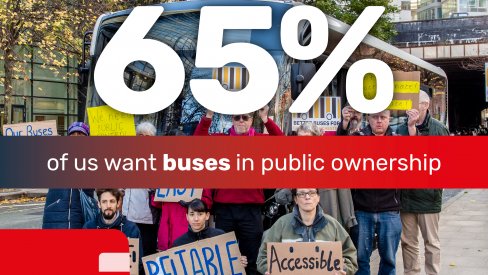
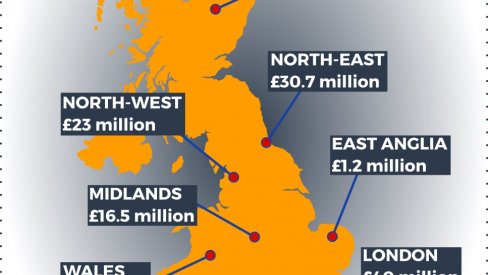
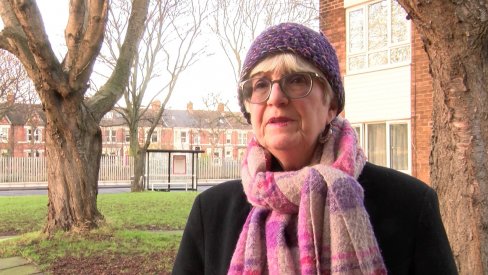
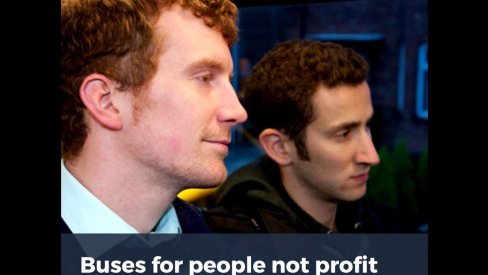
Comments
Natalie Murphy replied on Permalink
Most countries, including the greatest capitalist state in the world, the US have publicly owned and run transport systems. There is so many reasons our system DOES NOT WORK and since deregulation it has shown not to work and is the most expensive and least efficient in Europe. The most serious problem that this government have is that they take an ideological approach to this issue and that will always have a negative outcome for society.
Mike Byrne replied on Permalink
From my perspective, I am one of those people who live just off the main roads (which have all the frequent buses, which isnt even that good tbh). Most by me drive to the local supermarket and we are in the West Midlands conurbation. We also live on top of a steep hill. There is no bus at the top. My my perspective its a confusing mess of services with some some doubled up to the same place other large roads with no service at all. Up the hill the main bus company run the service which is wholly unreliable and a hourly service which goes at the same time. My elderly and disabled live around us. Most have to get two buses and wait around ages where a direct service would be more logical The supermarket is 1.6 miles away. It seems as though nobody grasps that people need links there and the consultations are useless often taking place near the supermarket (where there is no direct link) at times when most bus users are at work. What gets missed is individual issues and needs and a lack of understanding of local people. What is also missed is how inaccessible places are where its difficult especially for those with disabilities and elderly. Nobody can turn around and then moan about congestion when people chose cars due to the nature of where they live where a car is simply more practical and gets them where they need to go. If there is no such option via public transport. Forcing people out of cars is not logical if there is no alternative. Deregulation has focused on the main roads and ignored everyone else and hence so have the routes including some routes having tonnes of operators as its 'more profitable' not the people on that route needing it. In fact I see many walking to main frequent services as they need options getting to work etc. ignoring local services which if something goes wrong need options standing at a stop with an unreliable 30mins service isnt much of an option. Transport companies dont grasp the views of ordinary travellers
CurtisLic replied on Permalink
osqvisb
http://www.atelierdecharlotte.fr/981-chaussure-de-foot-pogboom.htm
http://www.expert-94.fr/822-chaussure-louis-vuitton-femme-2016.html
http://www.ajclim.fr/287-louboutin-blanche-croco.php
http://www.widoox.fr/202-versace-sneakers-2016.php
http://www.photo-pele-mele.fr/330-birkenstock-madrid-homme-noir-mat.htm
<a href=http://www.un-don.fr/212-balenciaga-sneakers-homme-rouge.html>Balenciaga Sneakers Homme Rouge</a>
<a href=http://www.catanddog.fr/081-yara-birkenstock.php>Yara Birkenstock</a>
<a href=http://www.ajclim.fr/225-louboutin-wedding.php>Louboutin Wedding</a>
<a href=http://www.catanddog.fr/388-birkenstock-femme-beige.php>Birkenstock Femme Beige</a>
<a href=http://www.depannagepc93.fr/355-adidas-gloro-rouge.html>Adidas Gloro Rouge</a>
Add new comment